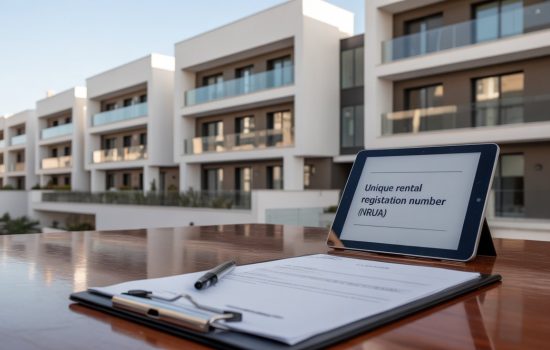
More and more courts are understanding that as long as there’s no new tax, no surplus can be collected. If you sold your home in Madrid or Barcelona, you may be able to get a tax refund
Catalonia, Madrid, Castile and Leon, Galicia, Canary Islands… more and more courts and tribunals are annulling the surplus-value settlements that municipalities used even when home prices went up. For these courts, the current situation causes a kind of automatic nullity of this controversial tax that taxes the increased value of the land generated at the time of the property’s transfer. According to this interpretation, it would no longer have legal support after the June 2017 Constitutional Court ruling was published. These are good news for the thousands of taxpayers who religiously paid and those who, based on these court’s criteria, can now be compensated if they litigate to recover their money.
In this sense, Leopoldo Gandarias Cebrián, tax law expert from the Alliantia firm, is no doubt encouraging those who can demonstrate the inexistence of an increased land value, to go to court and try to recover what they improperly paid. “As long as they are within the deadline to request the rectification of their payments or resort to the liquidations practiced by their municipality,” clarifies Gandarias. In other cases, the lawyer recommends an individualized analysis, “based on the dominant jurisprudence of the courts or tribunals called to resolve the matter, without prejudice to the appeals admitted so far for processing.” What are these other cases?
One of the most recent cases was the annulment of the surplus value demanded from a woman who inherited ten properties from her grandmother in Las Palmas de Gran Canaria. In its argumentation, the contentious court used the already noted “broad way”: the articles declared as unconstitutional have been “expelled” from the legal system and, therefore, it is no longer necessary to demonstrate that there has been no real gain in this period of time, but that all payments made based on this rule have been nulled. The tax payments amounted to 11,344 euros.
Madrid or Catalonia real estate or landowners also have a favorable jurisprudence for tax returns. Thus, in an October 2017 ruling (click here to access the ruling text), the Superior Court of Justice (TSJ) of Catalonia appealed to this interpretation of the Constitution’s ruling to annul a surplus value of more than 80,000 euros claimed from a real estate company by the Terrasa City Council. The company was favored by the court’s ruling under Barcelona’s laws, which the court confirmed with different arguments. According to the TSJ, once the reference articles have been eliminated determining when the tax should be demanded does not correspond to the Administration or the judges and courts. The only one who can do this is the legislator. This leads to the annulment of any tax liquidation currently in practice, otherwise, the judgment states, it would be leaving both the determination of the assumed taxpayers as well as the way in which the “eventual increase” is calculated to the “free will of the applicator”, the local entities involved in the management process or the reviewing judicial entities.
The Supreme Court of Madrid uses the same reasoning to annul, based on a July 2017 ruling, the surplus demanded by the Getafe City Council from a state agent, revoking the ruling that the Madrid court initially gave.
In Catalonia, consistories have come to request the procedure’s suspension until the legislator proposes a new tax regulation. This was rejected for not being foreseen in the procedural law, as indicated by the Contentious-Administrative Court No. 2 of Barcelona in the November 2017 ruling.
Where to litigate?
Faced with this trend, based on the liquidation annulment required for each case, the courts to be approached (Superior Courts of Justice of Aragon, Murcia, Valencian Community) that interpret the Constitutional ruling (STC 59/2017, of May 11th), in the sense that the tax can only be demanded if there’s a surplus. For these courts the tax is enforced for the cases in which there has really been a value increase in the property at the time of the transfer, that is, a surplus value. To return the tax, they require the taxpayer to prove the opposite case, through an expert report, or even by comparing the values consigned as purchase and sale prices in the deeds. There are even judges who will transfer the proof to the claimant who wants to collect the tax.
Based on the current situation, and considering the various opinion of the judicial bodies and as long as the legislator doesn’t regulate the tax again, the city councils and taxpayers will resort to the most favorable jurisprudential interpretation to try to fight the tax quota, which in most cases are not small amounts.
On its part, the Supreme Court has already admitted two cassation appeals for the formation of jurisprudence on this matter, in order to guarantee legal security and equality in the application of the law. It will be the Supreme Court who ultimately elaborates the legal criterion that will be applied throughout the national territory.
Therefore, just as Gandarias indicates, the panorama is still open, “which undoubtedly lead, at least in the short term, to an increase in litigation, pending the Supreme Court’s pronouncements.” He doesn’t rule out a new Constitutional pronunciation either, given the chaos caused by their previous sentences’ insufficiencies. The legislator shall maintain the non-subjection of any situation in which no increased value is proven, says the lawyer, but in any case, it shouldn’t affect already completed favorable situations because, in his opinion, “there are no qualified demands ‘of the common good’ or of ‘general interest’ that allow one to oppose the legal security principle”.
Who pays?
One issue to consider is the process cost payments. The courts, by being aware of this matter’s special situation, in which there is no clear position, don’t usually impose this tax on the party that loses the litigation, who in this case would be the municipalities.
- View more post about: Property Transfer Tax





